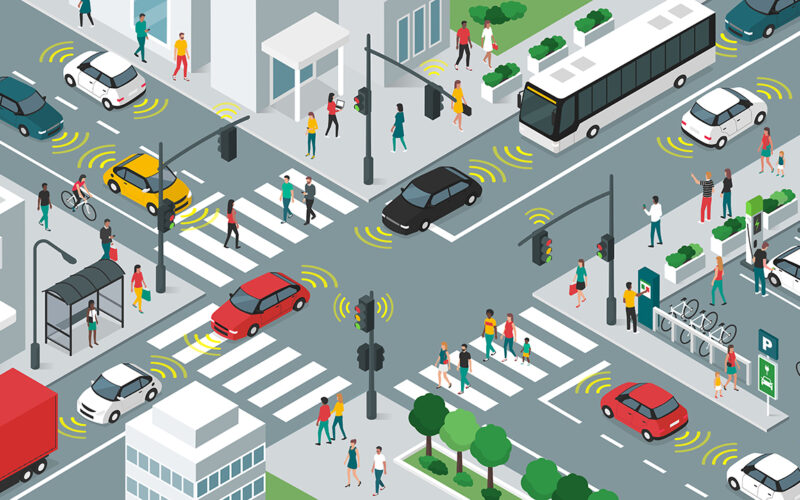Smart transportation is the use of information and communication technologies (ICT) to improve the efficiency, safety, and sustainability of transportation systems. It encompasses a wide range of technologies, including connected vehicles, intelligent traffic management systems, and smart parking.
There is a growing consensus that smart transportation is the future of transportation. This is because smart transportation has the potential to address many of the challenges facing our current transportation systems. These challenges include:
- Traffic congestion: Traffic congestion is a major problem in many cities around the world. It wastes time, fuel, and money, and it contributes to air pollution. Smart transportation can help to reduce traffic congestion by providing real-time traffic information, optimizing traffic signals, and coordinating public transportation.
- Safety: Transportation is one of the leading causes of death and injury in the world. Smart transportation can help to improve safety by providing drivers with information about road conditions and hazards, and by automating some driving tasks.
- Sustainability: Transportation is a major contributor to climate change. Smart transportation can help to reduce emissions by promoting the use of public transportation, electric vehicles, and other sustainable modes of transportation.
In addition to addressing these challenges, smart transportation also has the potential to offer a number of other benefits, such as:
- Increased convenience: Smart transportation can make it easier for people to get around by providing them with real-time information about their travel options.
- Improved efficiency: Smart transportation can help to make transportation systems more efficient by optimizing traffic flows and reducing the need for parking.
- Reduced costs: Smart transportation can help to reduce the costs of transportation by improving efficiency and reducing congestion.
The development of smart transportation is still in its early stages, but there is a lot of potential for this technology to transform the way we travel. As the technology continues to develop, we can expect to see even more benefits from smart transportation.
Here are some specific examples of how smart transportation is being used today:
- Connected vehicles: Connected vehicles are vehicles that are equipped with sensors and communication technology that allow them to communicate with each other and with infrastructure. This allows vehicles to share information about their location, speed, and direction, which can be used to improve traffic flow and safety.
- Intelligent traffic management systems: Intelligent traffic management systems use sensors and data analytics to monitor traffic conditions and optimize traffic signals. This can help to reduce congestion and improve travel times.
- Smart parking: Smart parking systems use sensors and technology to track the availability of parking spaces. This information can be made available to drivers in real time, which can help them to find parking more easily.
These are just a few examples of how smart transportation is being used today. As the technology continues to develop, we can expect to see even more innovative applications of smart transportation in the future.
There are a number of challenges that need to be addressed in order to fully realize the potential of smart transportation. These challenges include:
- Data privacy: Smart transportation systems collect a lot of data about people’s travel patterns. This data needs to be protected from unauthorized access in order to protect people’s privacy.
- Cost: Smart transportation technology can be expensive to implement. This can be a barrier to adoption in some areas.
- Interoperability: Smart transportation systems need to be able to communicate with each other in order to work effectively. This can be a challenge, as there are a number of different standards and protocols that are used in smart transportation.
Despite these challenges, there is a lot of momentum behind the development of smart transportation. Governments, businesses, and research organizations are all investing in this technology. As the technology continues to develop and the challenges are addressed, we can expect to see smart transportation become increasingly widespread in the years to come.
In conclusion, smart transportation is a promising technology that has the potential to transform the way we travel. It offers a number of potential benefits, such as reduced congestion, improved safety, and increased convenience. However, there are also a number of challenges that need to be addressed before smart transportation can reach its full potential. Despite these challenges, there is a lot of momentum behind the development of smart transportation, and we can expect to see this technology become increasingly widespread in the years to come.






